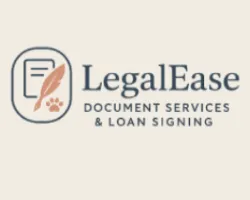Need To Get In Touch?
Mobile service only – no physical office. Appointment locations are arranged by text, email, or phone call at the time of booking. I travel to homes, offices, hospitals, and public meeting spots throughout Contra Costa County and surrounding areas.
Need additional support? Complete the form below, and we'll get in touch!
Frequently Asked Questions
What is a Notary Public?
A Notary Public is an official appointed by a state government to serve the public as an impartial witness during notarizations. As ministerial officials, they are expected to follow statutory rules without the exercise of significant personal discretion.
Notaries Public certify the proper execution of many of the life-changing documents of private citizens — whether those transactions convey real estate, grant powers of attorney, establish a prenuptial agreement, or perform the multitude of other activities that enable our civil society to function.
Why does my child going to college need a Power of Attorney (POA)?
Young adults need a Power of Attorney (POA) to ensure that their parents or another trusted adult can make decisions for them in the event of an emergency. This is particularly important as parents no longer have the legal right to access medical records, talk to doctors, or handle finances in an emergency after the age of 18. Without a POA, if a young adult is incapacitated, such as in an accident or hospitalization, no one can legally step in unless they have given permission in advance. A POA allows for the designated person to make medical decisions, handle financial matters, and access health records when necessary. It is a crucial step in providing peace of mind and ensuring that the best interests of the young adult are protected in case of unforeseen circumstances.
What do I need to bring to the signing appointment?
In California, the following forms of identification are generally considered acceptable for notarization:
· California driver’s license or identification card
· U.S. passport
· Foreign passport stamped by the U.S. Citizenship and Immigration Services (USCIS)
· U.S. military identification card
· Driver’s license or identification card issued by another U.S. state
· Mexican or Canadian driver’s license issued by an appropriate public agency
· Inmate identification card issued by the California Department of Corrections and
Rehabilitation if the inmate is in custody in a California state prison
· Any form of inmate identification issued by a sheriff’s department if the inmate is in custody in a
local detention facility
· Valid consular identification document issued by a consulate from the applicant’s country of
citizenship
· Employee identification card issued by an agency or office of the State of California or a
California city, county, or city and county
· Identification card issued by a federally recognized tribal government
· Oath or affirmation of one credible witness personally known to the Notary and identified
through statutorily prescribed ID cards or the oath or affirmation of two credible witnesses not
personally known to the Notary and identified through statutorily prescribed ID cards
These identification documents must be current or issued within the past five years to be accepted by California Notaries. It is essential to verify the authenticity of the identification documents presented to ensure compliance with California law.
Is there a difference between a Notary Public and a Loan Signing Agent (LSA)?
All signing agents are notaries — but not all notaries are loan signing agents. Becoming an LSA requires additional certification and training. The job of a notary is fairly limited in scope, so they stamp a wide variety of paperwork. LSAs, on the other hand, are trained to process loan documents. The mortgage and financial services industries tend to involve more complicated and sensitive transactions, which is where the expertise of an LSA becomes valuable.
Like a notary, LSAs may not offer legal advice, clarification of terms, or interpretation of the documents they assist with. They are simply brought in at the final stages of the loan to assist with document handling and processing. And because LSAs receive access to private financial information about borrowers, they are required to undergo background checks on an annual basis. This prevents mortgage fraud and helps keep consumers’ information secure. In addition to these periodic background checks, LSAs are trained to process loan document packages. This involves printing loan documents correctly, using a mailing service to return signed documents, and following any additional instructions required by the lender or title company.
The same identification is required as during a notification, EXCEPT, all forms must NOT be expired.
What is a Legal Document Assistant?
An LDA is an experienced professional who is authorized to prepare legal documents for a client, but only at the direction of the client. In other words, an LDA is there to assist the “self-help” client handle their own legal matters without the cost of an attorney. Since even the best legal, self-help books can be confusing and overwhelming, your LDA can provide invaluable assistance with routine legal tasks, such as typing and filing the paperwork for uncontested divorces, bankruptcies, wills, and many other types of documents. Again, because an LDA is forbidden to practice law of any sort, they cannot make suggestions as to what the client needs done for a particular matter, or what forms that the client must file with the state or the other party to the action.
What are the advantages of hiring an LDA?
LDAs provide a low-cost alterative to hiring an attorney for routine paperwork.
In many cases, one visit will usually be sufficient for you to be able to handle most matters.
LDAs will provide you with top-quality legal typing assistance.
Does LegalEase Document Services offer notary public, loan signings, and LDA services?
Yes, LegalEase Document Services & Loan Signing offers all three services for their clients. Remember, they CANNOT offer legal advice.
Copyright © Santa Barbara, California, 2025
